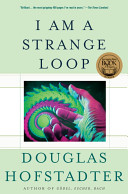Becoming a "Be-er" of Other People
For a while, one’s speaking is largely “fake” — that is, one is thinking in one’s native language but substituting words quickly enough to give the impression that the thinking is going on in the second language; however, as one’s experience with the second language grows, new grammatical habits form and turn slowly into reflexes, as do thousands of lexical items, and the second language becomes more and more rooted, more and more genuine. One gradually becomes a fluent thinker in and speaker of the other language, and it is no longer “fake”, even if one has an accent in it. So it is with coming to see the world through another person’s soul.
My parents, for instance, internalized each other’s psychic points of view very deeply over the nearly fifty years of their marriage, and each of them thus gradually became a “fluent be-er” of the other. Perhaps when my mother “was” my father, she was so with an “accent”, and vice versa, but for each of them, the act of being the other one was certainly genuine, was not fakery.
As with my parents, so there was some degree of genuine being of Carol by me when she was alive, and vice versa. Although it took me several years to learn to “be” Carol, and although I certainly never reached the “native speaker” level, I think it’s fair to say that, at our times of greatest closeness, I was a “fluent be-er” of my wife. I shared so many of her memories, both from our joint times and from times before we ever met, I knew so many of the people who had formed her, I loved so many of the same pieces of music, movies, books, friends, jokes, I shared so many of her most intimate desires and hopes. So her point of view, her interiority, her self, which had originally been instantiated in just one brain, came to have a second instantiation, although that one was far less complete and intricate than the original one. (Actually, long before she met me, her point of view had already engendered other instantiations, because it had of course been internalized to varying degrees and levels of fidelity by her siblings and her parents.) Needless to say, Carol’s point of view was always by far most strongly instantiated in her brain.
[...]
There are shallower aspects of a person and there are deeper aspects, and the deeper aspects are what imbue the shallower ones with genuine meaning. I guess that sounds cryptic. What I mean is that if I believe statement X (for example, “Chopin is a great composer”) and someone else also believes X, then, despite this ostensible agreement between us, our internal feelings when we think X may be unutterably different even though, on the superficial verbal level, our belief is “the same”. On the other hand, if our souls have a deep resemblance, then our two beliefs in X will in fact be very similar, and we will intuitively resonate with each other. Communication (at least on that topic) will be nearly effortless.
What really matters for mutual understanding of two people are such things as having similar responses to music (not just shared likes but also shared dislikes), having similar responses to people (again, I mean both likes and dislikes), having similar degrees of empathy, honesty, patience, sentimentality, audacity, ambition, competitiveness, and so on. These central building blocks of personality, character, and temperament are decisive in mutual understanding.
[...]
But the key question is, no matter how much you absorb of another person, can you ever have absorbed so much of them that when that primary brain perishes, you can feel that that person did not totally perish from the earth, because they (or at least a significant fraction of them) are still instantiated in your brain, because they still live on in a “second neural home”?
Notes:
Folksonomies: consciousness personality relationships
Taxonomies:
/hobbies and interests/games/board games and puzzles (0.447808)
/art and entertainment/music/music genres/soul music (0.446101)
/science/social science/linguistics/translation (0.392736)
Keywords:
fluent be-er (0.958225 (positive:0.332601)), mutual understanding (0.897645 (positive:0.571305)), superficial verbal level (0.878547 (negative:-0.526358)), central building blocks (0.873633 (positive:0.206699)), primary brain perishes (0.866048 (neutral:0.000000)), similar responses (0.831603 (positive:0.464990)), fluent thinker (0.776407 (positive:0.424734)), lexical items (0.752589 (neutral:0.000000)), grammatical habits (0.747533 (negative:-0.349705)), native language (0.740237 (neutral:0.000000)), genuine meaning (0.730387 (positive:0.585090)), greatest closeness (0.727582 (positive:0.490169)), psychic points (0.724362 (negative:-0.348236)), intimate desires (0.721185 (positive:0.617288)), joint times (0.713721 (neutral:0.000000)), deep resemblance (0.713077 (positive:0.340542)), native speaker (0.709520 (neutral:0.000000)), deeper aspects (0.708374 (positive:0.585090)), great composer (0.706673 (positive:0.491896)), internal feelings (0.705500 (negative:-0.214908)), ostensible agreement (0.704198 (negative:-0.391069)), significant fraction (0.702829 (negative:-0.458992)), key question (0.698965 (neutral:0.000000)), shallower ones (0.698268 (positive:0.585090)), neural home (0.697755 (neutral:0.000000)), shallower aspects (0.696552 (neutral:0.000000)), similar degrees (0.684792 (positive:0.408340)), person (0.676977 (positive:0.321195)), view (0.667164 (negative:-0.123805)), people (0.663822 (positive:0.222166))
Entities:
Carol:Person (0.889133 (positive:0.230673)), fifty years:Quantity (0.889133 (neutral:0.000000))
Concepts:
Second language (0.926509): dbpedia | freebase
First language (0.892152): dbpedia | freebase
Thought (0.806385): dbpedia | freebase | opencyc
French language (0.803711): dbpedia | freebase | opencyc | yago
Multilingualism (0.748359): dbpedia | freebase
Language (0.745282): dbpedia | freebase | opencyc
People (0.612562): dbpedia | freebase
Windows Genuine Advantage (0.609748): website | dbpedia | freebase | yago





